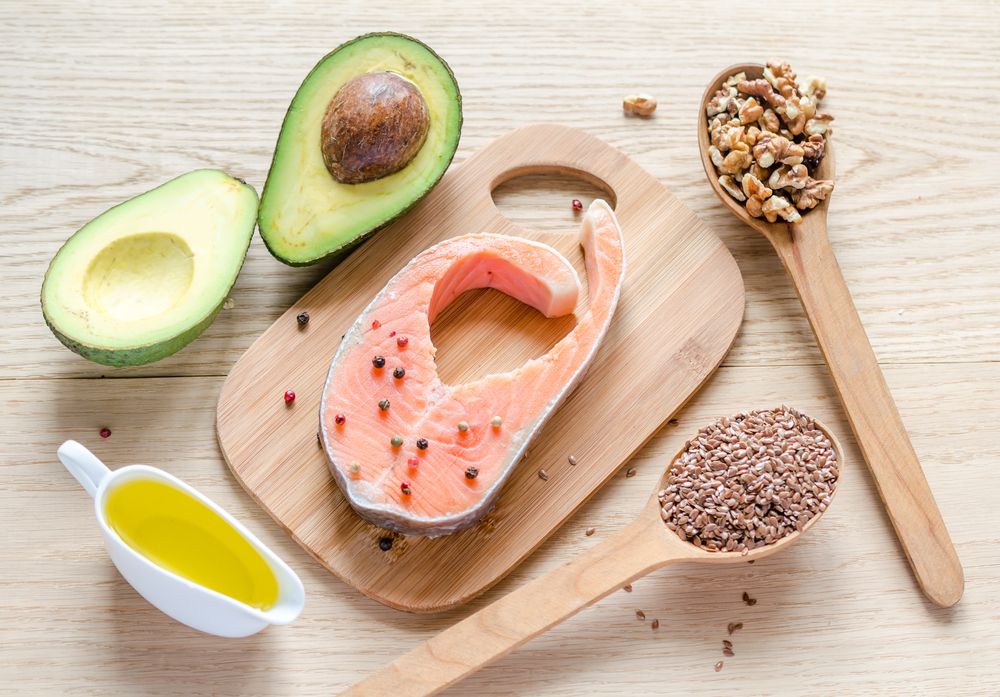Seven Fascinating Facts About Omega 3
Boosting brain function, assisting in smoking cessation, and proven to protect both mother and baby during pregnancy. Discover seven captivating facts about one of the most crucial components in our daily diet—Omega 3.

Omega 3 is a broad term for a group of essential fatty acids that aid various processes in our bodies. However, the body produces them in limited amounts (as a membrane for different cells) and primarily acquires them through the foods we consume. Due to high-stress Western lifestyles, our diets are often imbalanced, leading to a severe deficiency in Omega 3.
So, how can we obtain Omega 3, and which processes does it assist? Here are some facts that will truly help you make the wise decision to pay attention to the foods you consume, not just regarding kosher certification:
Omega 3 in its 'Available' Form
Flaxseed oil, flaxseeds, green leaves, and canola oil are some of the foods that contain Omega 3. However, to make them beneficial, the body needs to convert them into an available form or process them from their original state. For a healthy person, the body will process these foods effortlessly, yielding a minimal amount of Omega 3. However, in a sick person, the body 'lacks the strength' to perform the process, not even for a drop of Omega 3. Thus, it's recommended for such individuals to consume Omega 3 through fish or dietary supplements (consulting a doctor).
Not Only Fatty Fish Count
It is commonly believed that Omega 3 is only found in fatty fish from the sea, such as salmon, tuna, and mackerel. However, this is not entirely accurate. In fact, when discussing Omega 3, it's important to consider not just the type of fish but also its diet. Pond fish like mullet, for example—whose diet is rich in Omega 3—can meet the need just like sea fish.
Aiding Brain Functions
Numerous studies in the field have proven the effectiveness of Omega 3 in various brain functions: enhancing memory, preventing anxiety, combating depressive moods, improving well-being, and reducing the risk of Alzheimer's.
 Photo: Shutterstock
Photo: ShutterstockHow Much to Consume?
The recommendation by doctors is to eat about three servings of Omega 3-rich fish per week, or alternatively, 500 mg of Omega 3 supplement per day for a healthy person. Those who have undergone any medical trauma or suffer from inflammatory infections, blood fats, etc. - doctors will often recommend a higher intake of Omega 3 in one of the two formats mentioned.
Omega 3 Assists in Smoking Cessation
Good news for smokers trying to quit: Findings from a joint study by Bar-Ilan University and the University of Haifa show that Omega 3 consumption greatly assists in the process of quitting smoking. The researchers found that participants who took Omega 3 during the study experienced a drastic reduction in nicotine cravings, whereas those who did not consume Omega 3 developed an obsession with immediate smoking and could not cope with the stress that the lack of it causes.
Omega 3 for Pregnant and Nursing Women
Omega 3 has been scientifically proven to contribute to the proper development of the fetus in the mother's womb, as well as being born with normal weight and at the estimated time. The prevalent dosage recommended by the Israeli Obstetrics Association in 2014 is equivalent to two servings of sea fish per week to maintain a healthy nervous system of the fetus and reduce the risk of the mother experiencing postpartum depression.
Omega 3 Consumption Among Children
Studies have shown a direct link between Omega 3 consumption and the improvement of children's cognitive abilities, including improvement in concentration problems, attention disorders, and hyperactivity.
 Salmon, nuts, flax, and avocado (Photo: Shutterstock)
Salmon, nuts, flax, and avocado (Photo: Shutterstock)
